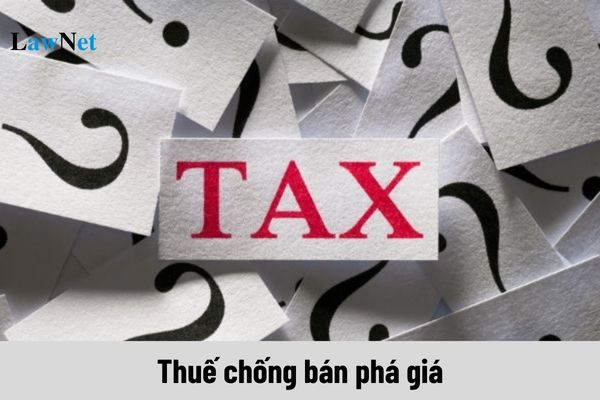What extent is anti-dumping duty applied to in Vietnam?
What are conditions for applying anti-dumping duties in Vietnam?
According to the provisions in Clause 1, Article 12 of the Law on Export and import duties 2016, the conditions for applying anti-dumping duty are as follows:
- Dumped imported goods in Vietnam must have a specifically determined dumping margin;
- The dumping of goods must be a cause or threat of significant damage to the domestic industry or hinder the establishment of a domestic industry.
What extent is anti-dumping duty applied to in Vietnam?
According to the provisions in Clause 2, Article 12 of the Law on Export and import duties 2016, the principles of applying anti-dumping duty are as follows:
- anti-dumping duty is only applied to the necessary and reasonable level to prevent or limit significant damage to the domestic industry;
- The application of anti-dumping duty is conducted after an investigation and must be based on the conclusions of the investigation as prescribed by law;
- anti-dumping duty is applied to goods dumped into Vietnam;
- The application of anti-dumping duty should not harm the domestic socio-economic interests.
Thus, anti-dumping duty is only applied to the necessary and reasonable extent to prevent or limit significant damage to the domestic industry.

What extent is anti-dumping duty applied to in Vietnam? (Image from the Internet)
What is the guidance on paying anti-dumping duty in Vietnam?
Based on Clause 5, Article 39 of Circular 38/2015/TT-BTC as amended by Clause 23, Article 1 of Circular 39/2018/TT-BTC, the instructions for paying anti-dumping duty are as follows:
[1] anti-dumping duty pursuant to the provisional anti-dumping duty application decision by the Minister of Industry and Trade is paid to the deposit account of the customs authority where the customs declaration is registered at the State Treasury (According to the corresponding state budget index for each type of tax);
[2] In the case where the Minister of Industry and Trade issues a decision on the official application of anti-dumping duty, the amount of anti-dumping duty already paid according to the provisional application decision is transferred by the customs authority from the deposit account to the state budget.
In the case of overpaid anti-dumping duty, it is handled according to the provisions in Clause 6, Article 39 of Circular 38/2015/TT-BTC as amended by Clause 23, Article 1 of Circular 39/2018/TT-BTC as follows: "The amount of anti-dumping duty paid according to the provisional anti-dumping duty application decision by the Minister of Industry and Trade that exceeds the tax payable after the official anti-dumping duty application decision by the Minister of Industry and Trade is refunded to the taxpayer from the customs authority's deposit account."
The procedure for handling overpaid anti-dumping duty is implemented according to the provisions in Article 131 of Circular 38/2015/TT-BTC as amended by Clause 64, Article 1 of Circular 39/2018/TT-BTC as follows:
Step 01: Submit documentation
The taxpayer fully declares the information indicators specified in Form No. 03 Appendix IIa issued with Circular 39/2018/TT-BTC and submits to the customs authority through the electronic data processing system.
In the case of paper documentation, the taxpayer submits a refund request letter according to Form No. 27/CVDNHNT/TXNK Appendix VI issued with Circular 39/2018/TT-BTC.
Step 02: Document verification
The customs authority where the excess tax payment arises performs checks through the electronic data processing system, if the taxpayer's declaration is accurate, feedback on the acceptance of the filed documents is sent to the taxpayer.
If the taxpayer’s declaration is inaccurate, the customs authority will respond with a refusal to accept the documents through the electronic data processing system.
Step 03: Document processing
- For paper documents, the customs authority receives, checks, and compares the taxpayer's request with the legal regulations on tax management. If it is determined not to be eligible for refund of overpaid tax, the customs authority will notify using Form No. 06/TXNK issued along with Circular 06/2021/TT-BTC within 8 working hours.
Note: Form No. 12/TBKTT/TXNK Appendix VI issued with Circular 39/2018/TT-BTC has been abolished by Point e, Clause 2, Article 20 of Circular 06/2021/TT-BTC.
- Within 5 (five) working days from the receipt of a valid taxpayer refund request, the customs authority issues a refund decision for overpaid tax using Form No. 09/QDHT/TXNK Appendix VI issued with Circular 39/2018/TT-BTC and notifies the taxpayer.
In the case of ineligibility for tax refund, the notification is made using Form No. 06/TXNK issued along with Circular 06/2021/TT-BTC.
The processing of overpaid tax refunds is conducted according to the provisions in Article 132 of Circular 38/2015/TT-BTC as amended by Clause 65, Article 1 of Circular 39/2018/TT-BTC.

